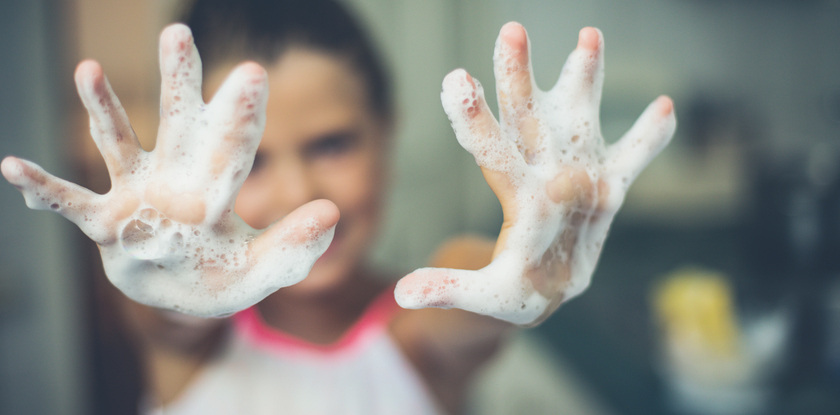When children begin attending school in the fall, viruses spread more readily as kids spend more time in crowded conditions indoors. Although school-aged children will average up to half a dozen colds annually, you can take proactive steps to help them stay healthy.
St. Louis Children’s Hospital stresses the importance of wellness checks with your children’s doctors. Physicians can assess their health and development, perform tests, and provide needed vaccines.
Remind your kids that germs can easily spread when they handle an infected object and then touch their own mouth, nose, or eyes—which makes hand washing an important part of illness prevention. Children can use soap and water for twenty seconds after using the restroom, blowing their noses, touching animals or trash and before eating. Alcohol-based hand sanitizers can also be helpful.
Emergency room physician Dr. Leana Wen talked to CNN about ways to strengthen your children’s immunity and protect their health. She noted how multiple studies have found that getting enough sleep helps to boost immunity while not doing so can lead to more frequent bouts of illness and an overall reduced sense of well-being. Eating nutritious foods has also been connected to improved immunity—fruits, vegetables, grains, nuts, and other whole foods—along with keeping physically active.
Your Kid’s Urgent Care suggests that parents talk to their children’s school to find out details of their illness prevention policies. They might include a ban on sharing food and drinks, mandates about sick children staying home, and so forth. Gain clarity on the policies and then help your children to understand them and the reasons why they’ve been implemented so that they can effectively follow these rules.
Teach your children that, if they sneeze or cough, they should do so in a tissue when available (and to throw that tissue away immediately afterwards). If a tissue isn’t nearby, tell your children to sneeze or cough into their elbows rather than in their hands.
If Your Child Does Get Sick
Despite parents’ best efforts, children will get sick. When this happens, keep them home from school until symptom-free for twenty-four hours. With colds, ensure they’re getting enough rest and fluids and consider using a humidifier to help with congestion. With older children, ibuprofen may help with discomfort (ask your doctor!).
With the flu or another more serious illness, have your child checked by a medical professional.
If children have a fever, it’s normal for temperatures to be lower in the morning and higher in the evening. So, if feverish the night before, children should probably stay home the next day even when registering normal temperatures in the morning.
Horizon Education Centers
In each of our programs, we teach and encourage techniques for staying healthy, including regular hand washing and eating healthy snacks. When you enroll your children, you’ll receive a comprehensive parent handbook that includes information about our illness prevention policies.
Learn more about all Horizon has to offer and schedule a tour today!







